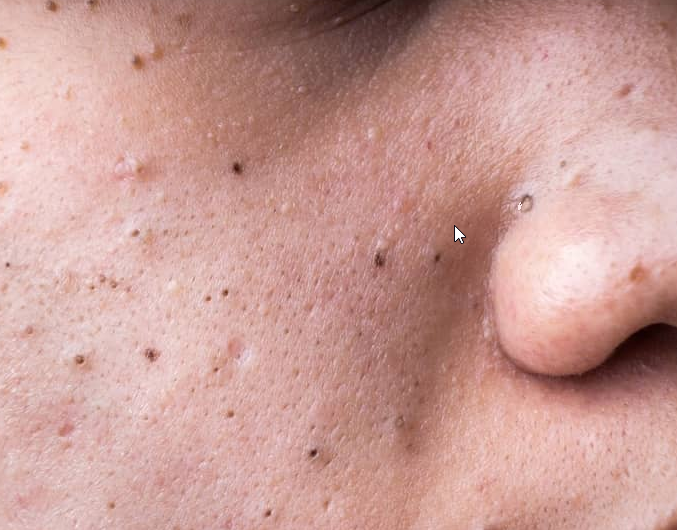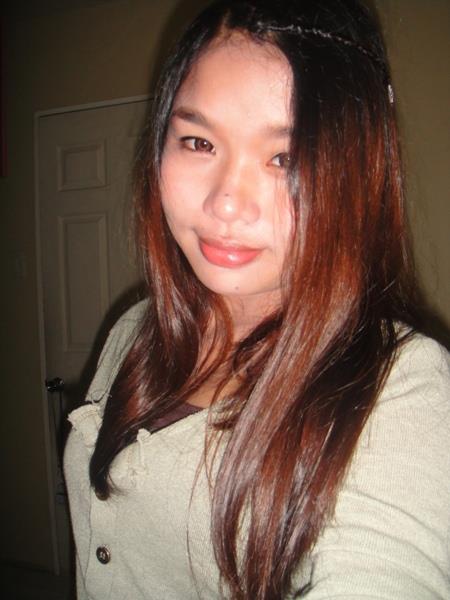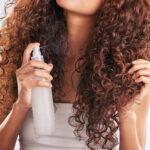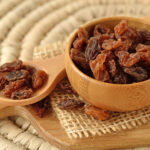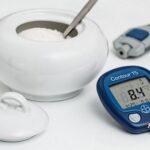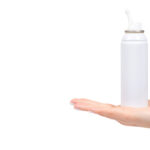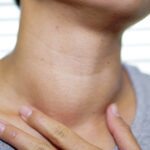There’s all you need to know about blackheads :
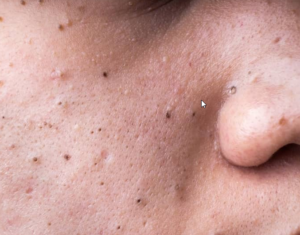
Small pimples occur on your skin as a result of obstructed hair follicles. Because the pimples’ surface appears dark
or black, they’re called blackheads. Blackheads are a moderate kind of acne that most commonly develops on the
face. Still, they can also show up on the following body parts:
- back,
- chest,
- neck,
- arms,
- shoulders
Blackheads are, without a doubt, one of the most aggravating types of acne. They can be tough to remove safely and
effectively because they’re embedded deep into the pores. Dr Hadley King and Dr Joshua Zeichner, both NYC
dermatologists, chatted with me about blackheads and the best ways to treat them. I asked them for their top
product recommendations. Perhaps the most crucial piece of advice? Blackheads (and visible pores in general) are
expected, and there’s no way to avoid them altogether.
What are blackheads?
It’s easy to believe that blackheads’ dark appearance is due to an accumulation of debris, but this isn’t the case.
Dr King says, “blackheads occur when a pore becomes plugged with dead skin cells and oil.” “When this material is
exposed to air, it oxidizes and turns black, hence the name ‘blackhead.'”
Blackheads are more typically found on the forehead, nose, and chin, which produce the most oil (also known as the
t-zone). They can also be found on the shoulders, back, chest, and inside the conchal bowl of the ears. According to
Dr Zeichner, heredity is the primary source of blackheads. He continues, “However, there are some external
predisposing variables that may be managed.” “Breakouts can be caused by stress and your nutrition, as we all know.
Stress, as well as skim milk and foods with high sugar content, stimulate inflammation and oil production.”
Who are the people who are affected by blackheads?
Blackheads are more common in teenagers and young adults who are going through hormonal changes.
Many adults, however, suffer from acne well into their 20s, 30s, and beyond. As adults, some people get
blackheads for the first time.
How common is this condition?
Blackheads are a common occurrence. According to several studies, blackheads affect nearly everyone
at some point in their lives. Blackheads are most common in teenagers, although they can also
be found in up to 10% to 20% of adults.
How do blackheads affect my body?
Blackheads are most likely to form on your face (particularly your nose and chin, but also your cheeks), neck, back,
and chest. Oil glands (sebaceous glands) are found all over your body. They secrete sebum, an oily lubricant that
keeps your skin and hair nourished and lustrous. As a result, blackheads might occur on your buttocks, thighs, ears,
and armpits, although they are uncommon.
Blackheads don’t have a significant impact on your physical health, but they can have a psychosocial (how society
and social groups influence your mind) and psychological impact (your self-perception and behaviour). Anxiety,
despair, emotional disorders, and suicidal thoughts are all symptoms of blackheads.
symptoms
The tiny, dark lesion that gives blackheads their name is the predominant symptom. It is an acne symptom, but due
to its wide pores, it varies from other acne lesions in several aspects. It has anti-inflammatory properties. This means
they aren’t infected and won’t produce the same kind of pain and agony as pimples. They have a rougher feel than
pimples but are flatter. In certain patients, the change in appearance produced by blackheads might cause
embarrassment and social or psychological difficulties.
Acne with blackheads is a less severe kind of acne. Dark, open pimples on your skin characterize blackheads.
They don’t hurt or make you feel uneasy like whiteheads do.
causes
The effects of age and hormonal changes are significant. Blackheads, like other acne signs, are most common
throughout puberty, when hormone levels shift and sebum production increases.
- cosmetics and clothing that block or cover pores
- heavy sweating *shaving and other activities that open hair follicles
- high humidity and grease in the immediate environment
- some health conditions, such as stress, polycystic ovarian syndrome (PCOS), and premenstrual syndrome (PMS)
- medications that encourage rapid skin cell turnover
-
using some steroid-based treatments, such as corticosteroids
-
medications that promote fast skin cell turnover
Are blackheads contagious?
Blackheads aren’t spreadable. You can’t pass blackheads from one person to another by skin-to-skin contact.
How can you know if you have blackheads?
Because blackheads are easy to spot, you don’t need a doctor to identify them. If you have blackheads and other
severe acne, seek treatment from a dermatologist. Dermatologists are doctors who specialize in problems with the
skin, hair, and nails. Unless severe acne is present, blackheads rarely cause a doctor’s visit, and their appearance
makes them easier to recognize and diagnose.
How are blackheads treated?
Most people can treat their blackheads at home without visiting a doctor, but some behaviors might aggravate them or trigger a more severe form of acne.
Because there are so many myths and contradictions regarding how to cure blackheads, it’s probably better to experiment and find what works for you.
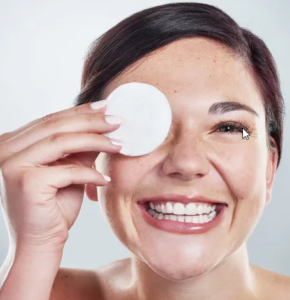
Cleaning: Using unique scrubs to exfoliate the face might be beneficial gently. Look for fragrance-free and
sensitive-skin products, and avoid anything that makes your skin too dry. On the internet, you may buy a variety of
things. While it is vital to dry the skin by reducing excessive oil production, drying it too much may exacerbate the
problem by promoting the glands to produce more oil.
Make-up and cosmetics: Use non-comedogenic products that do not clog pores to keep pores open while
reducing dead skin buildup. Various brands of non-comedogenic cosmetics are available to buy online.
Non-inflammatory acne therapies include azelaic acid, salicylic acid, and benzoyl peroxide, which are available in
prescription and over-the-counter (OTC) formulations. These are topical treatments that are applied to the skin
directly. To prevent plugs from forming in the hair follicles and encourage a faster turnover of skin cells, prescription
drugs containing vitamin A, such as tretinoin, tazarotene, and adapalene, may be administered.
On the other hand, most people wait until their acne has progressed to the point where it is infectious or severe, such
as pimples, before seeking therapy. If the blackheads become irritating, it may be advisable to get them removed by a
skincare specialist.
Other skin diseases, such as eczema or rosacea, can make treating blackheads more difficult. The condition should be
treated before the acne because successful therapy may reduce blackheads.
Relaxation: Getting enough rest and avoiding stress, which can promote sebum production, can also assist.
Exercise can help in the reduction of stress.
Food: While no proof cutting out fries or chocolate would help you get rid of acne, a healthy, balanced diet rich in
fresh fruits and vegetables is suitable for your general health. It has the potential to lower the chances of skin lesions
becoming infected.
There are a few home remedies that may help treat blackheads:
Tea tree oil can prevent or stop bacteria from growing. Use a cotton applicator to apply a little tea tree oil to your
blackheads.
Sugar or salt scrubs: Sugar and salt scrubs remove dead skin cells from the surface of your skin by scratching
them away (exfoliating). Wet your face, add a salt or sugar scrub to the afflicted regions, and massage your skin in
small, circular motions for up to 30 seconds. When you’re done, rinse your face with water.
Green tea leaves, when wet, can aid in the reduction of oil production in the skin. Green tea is an antioxidant as
well. Mix dry green tea leaves with water and massage the wet leaves into your skin for up to 30 seconds in tiny,
circular motions. When you’re done, rinse your face with water.
Do blackheads go away on their own?
Depending on how deep the blackheads are in your skin, they may go on their own. A blackhead near the surface of
your skin has a better chance of disappearing on its own. On the other hand, some blackheads can be deeply lodged
in your skin, and deeply embedded Blackheads are less likely to disappear on their own. A dermatologist or medical
aesthetician can remove blackheads that have become entrenched in your skin.
What is the best way to get rid of deep blackheads?
A medical specialist, usually a dermatologist or a medical aesthetician, should remove deep blackheads. They apply
even pressure to your blackheads with a bit of tool with stiff metal loops on the ends (blackhead or comedo
extractor). They can safely remove the entire blackhead and limit the chances of it coming back.
Is it okay to squeeze out blackheads?
Squeezing or popping blackheads can be pretty tempting – and gratifying. Squeezing out blackheads, on the other hand, can lead to some issues:
- You may not be able to get rid of the full blackhead, and you may even irritate your skin by pushing the blackhead deeper into your skin.
- Bacteria or more oil may be introduced into the blackhead orifice. Your blackheads may grow in size or possibly spread.
- Scarring or inflammation. Your nails are significantly more potent than your skin, and your skin is sensitive. You can irritate or gravely injure your skin if you use your nails to apply a lot of pressure to your skin to remove a blackhead.
